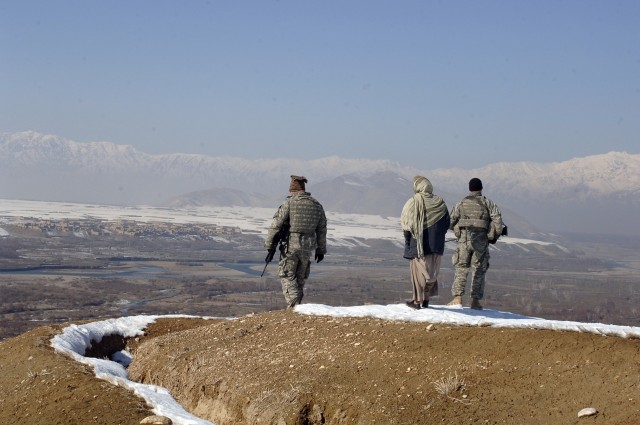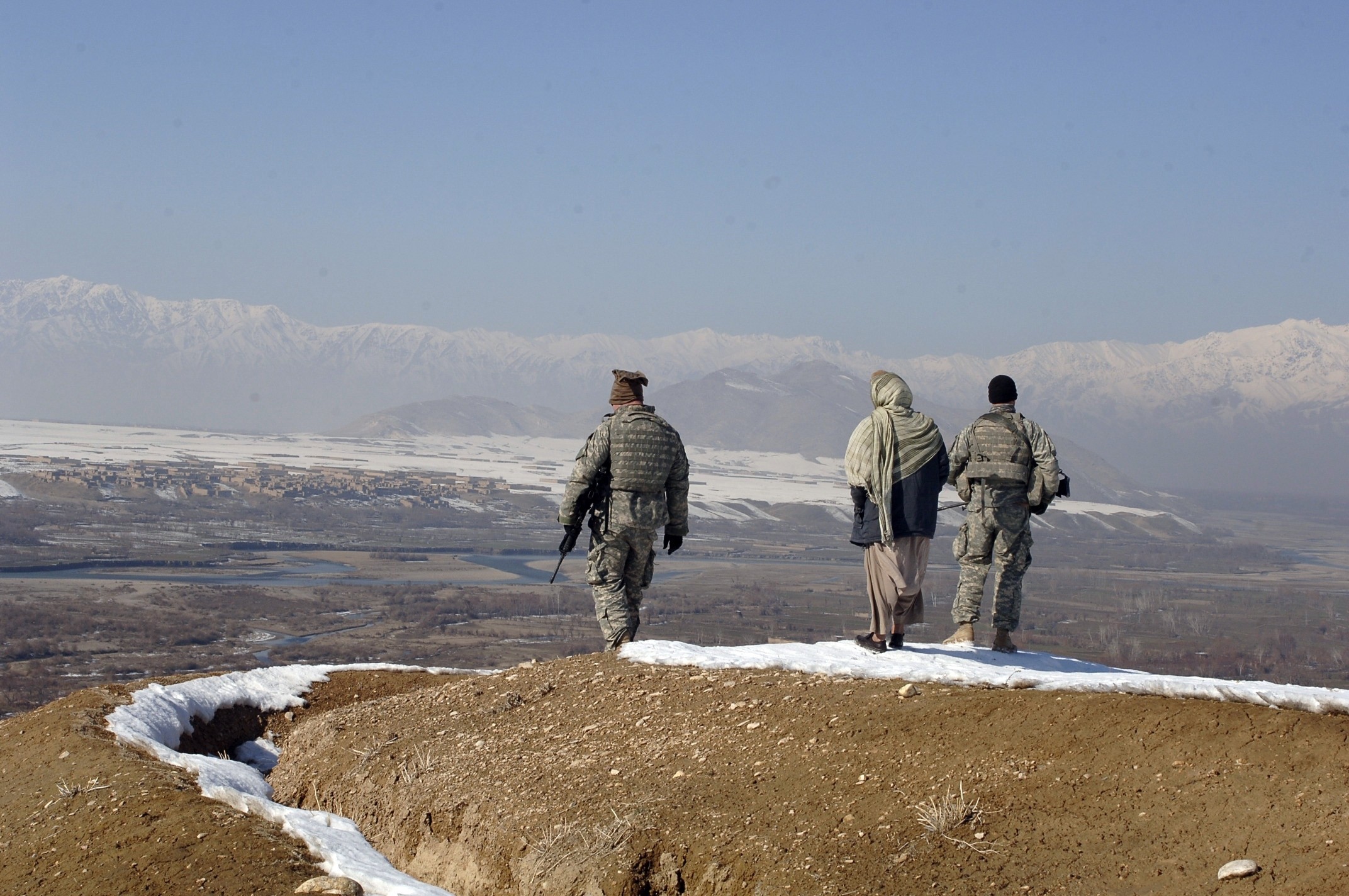KABUL, Afghanistan (American Forces Press Service, Jan. 16, 2007) - NATO, U.S. and Afghan forces are preparing to counter an expected Taliban spring offensive, the commander of combined forces here said today.
Army Lt. Gen. Karl Eikenberry, commander of Combined Forces Command Afghanistan, spoke to reporters traveling with Defense Secretary Robert M. Gates. The secretary is visiting the country to get a firsthand look at the situation on the ground and to meet with senior Afghan and American officials.
The general, who has served more than three years in Afghanistan since 2002, said he expects the Taliban to launch a terror offensive in the south and east of the country. "I would expect that the enemy will have its main effort against southern Afghanistan," he said. "The enemy will try to conduct terror attacks against Kandahar and other urban centers."
Eikenberry\'s command inactivates Jan. 21, and most American forces in Afghanistan already report to the NATO-led International Security Assistance Force. Between 23,000 and 24,000 American servicemembers are in Afghanistan, the highest troop level the United States has had in the nation, Eikenberry said. "I don't anticipate any reduction," he added.
Eikenberry said the Taliban would try to restrict the mobility of NATO forces and try to conduct attacks against district centers or outlying areas at night. These attacks will not be to hold the areas, just to cause disruption, he said.
The Taliban also will try to pin NATO forces in place along the Afghan border with Pakistan. He classified that tactic as the enemy's supporting effort. "I think there will be areas in the east and the south where they will reassert some of the influence they gained last spring and summer," Eikenberry said.
In spring and summer of 2006, Taliban fighters reasserted themselves in isolated communities in the country. However, U.S. and NATO forces pushed the Taliban fighters out in relatively short order. Still, the Taliban had a small psychological victory out of the offensive.
The general said the Taliban isn't strong militarily; instead they'll try to duplicate that psychological victory. "(They are trying) to undermine the will of the Afghan people, trying to separate the Afghan people from their government, trying to show that Afghan national security forces, NATO forces, U.S. forces are not up to the task," he said.
Still, U.S. and other coalition and NATO forces here are up to the task, he said. "I'm very confident that, as I look at what we're doing now, although it is going to be a violent spring and we're going to have violence into the summer, I'm absolutely confident that we will be able to dominate," he said.
In addition, the Taliban has less capability than last year, Eikenberry said. The Dec. 19 death of Mullah Akhtar Mohammad Osmani one of the top three Taliban commanders, is indicative of the success the coalition has been having against mid-level and senior-level Taliban leaders.
One aspect that is not working well, however, is an agreement by Pakistani tribal leaders in North Waziristan, a mountainous region of northwestern Pakistan that borders Afghanistan, to stop Taliban infiltration.
Last week, U.S. and Afghan forces killed 130 Taliban infiltrators coming into Afghanistan from Pakistan. While Pakistan is adopting a more comprehensive counterterrorism policy, more must be done to stop al Qaeda and the Taliban from using the tribal areas of Pakistan as training and recruiting grounds, Eikenberry said.
"The enemy uses both sides of the border, and they use Pakistan for command and control," he said. "They have senior leaders that operate on both sides of the border."
U.S. intelligence officials speaking on background said the problem of infiltration across the Pashtun tribal belt has a long history. There is no easy solution since geography -- it is rough country -- and family relations -- it is a tribal environment -- conspire against separation.
The number of attacks along the Waziristan border is up 200 percent when compared to last year, Eikenberry said. Some of that is due to the increased presence of Afghan and NATO forces in the region. Some of it is the Taliban getting back on its feet. "In all regions there is tremendous growth in forward operating bases," the general said.
These bases and the Afghan platoons and companies that man them represent the advance of the Afghanistan government. "They are going into places where there was no government representation," Eikenberry said. "You are having contests for areas that were never fully under the control of the government of Afghanistan."
Another problem is that NATO's ISAF is short about 10 percent of the forces that the alliance's political leaders agreed to provide.
British Army Gen. David Richards, the commander of ISAF, also has emphasized the need for a theater reserve force -- an infantry battalion of 1,000 to 1,200 men -- in Afghanistan. Eikenberry said he supports this view. "We're not talking about large numbers of forces in order to have the margin of victory," he said. "This is not a strong enemy; small numbers of forces can be decisive."
Eikenberry said force levels in Afghanistan cannot be limited to NATO or U.S. forces any more. "The Afghan National Army is starting to deliver capability," he said. "They are starting to acquit themselves well on the battlefield, and the Taliban is gaining a very healthy respect for that force."
He said the Afghan police force also is making strides.
"We are in a campaign right now where we have had extraordinary political success," he said. "Ninety percent of the people of Afghanistan ... firmly reject the Taliban. The government remains popular. At the same time, the question the people of Afghanistan ... want answered is not how to elect a government, but what is this government delivering to them."
Eikenberry said it is easy to see the negatives in Afghanistan: It is a poor country; it does have divisions; it does expect a Taliban offensive. "On the surface, we're going to have some violence here this spring," he said.
"But under the surface," he added, "there are some very strong currents that are going in the right direction: The government of Afghanistan is much stronger right now; it has a much better set of governors than it did four years ago; it has a much more capable army (and) police force."
"


Social Sharing